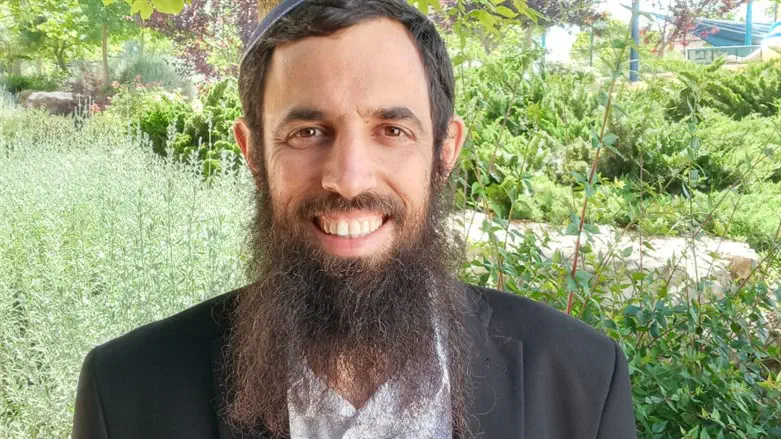
Agriculture in Eretz Yisrael and the G-d-given Torah express one idea – "connecting the earth and the heavens." The Jewish people work their land in ethical fashion, as commanded by He Who gave the Torah. The unity of the two reasons for the holiday is expressed in the Offering of the Two Loaves and in bringing the First Fruits to the Holy Temple.
Below are the laws relevant for the holiday, with the ones relating to this year marked with an asterisk:
*-It is necessary to light a yahrzeit or other long lasting candle before the Shabbat immediately preceding Shavuot this year in order to have a lit source of fire to use on the holiday. On Shabbat, lighting a candle in any manner (with a match or from another candle) is absolutely prohibited, but on the Shavuot holiday, as with all holidays, it is permitted to light a candle from an existing flame.
*- Seuda shlishit (the third Shabbat meal) should be eaten early so that we have an appetite for the holiday meal on Saturday night.
*- Preparing for the holiday in any way on Shabbat is prohibited and preparation for the holiday night's meal may be begun only after the stars are out. However, sleeping on Shabbat afternoon is not considered preparing for Shavuot night learning.
*-The maariv (evening) prayer on Saturday night includes "Vatodienu," the prayer that separates Shabbat from the holiday.
*- Holiday candles are lit after Shabbat is over. The flame must be lit from an already burning source of fire. Ashkenazim and some Sephardim say the Shehecheyanu blessing.
*-This is the order of Kiddush: The blessing over wine precedes the central part of Kiddush itself, then the blessing over fire (one can use a yahrzeit candle to which a match is added), the havdala blessing, the shehecheyanu blessing. This is a special Kiddush in which the separation of Shabbat and the holiday are intertwined. It can be found in the machzor (siddur for the holiday)– and note that we say "hamavdil bain kodesh lekodesh" in contrast to the regular havdala ("hamavdil bain kodesh lechol") said on other Saturday nights.
*-Holiday garments must be as nice as those worn on Shabbat, or even more festive than those for Shabbat.
- It is fitting to give charity to those who need it to purchase meals for the holiday and to invite the needy to one's holiday table.
*-It is permitted to set the oven timer before Shabbat so that it begins to work automatically during the holiday. Food may be cooked or baked in it on Shavuot but not on Shabbat.
*-The Maariv prayer on the night of Shavuot is said somewhat later than on Shabbat so that the Counting of the Omer is recited at the culmination of "seven complete weeks", as the Torah commands. However, one can pray earlier as long as Kiddush is recited after the stars come out.
- It is the custom in many congregations to stay awake learning Torah all night, in order to atone for the People of Israel, who fell asleep before the giving of the Torah, and also as preparation for receiving it. The Sepharadim have a special "tikkun" from which they learn. Rabbi Kook would learn the Rambam's Sefer HaMitzvot. Today many people attend shiurim, Torah lectures, - and at any rate, it is proper to try not to waste time frivolously that night.
-Cold and hot liquids are served at synagogues during the night. It is best to say the Shehakol prayer before each drink and "boreh nefashot" once one's thirst is sated. If one fears he will forget, he can say "shehakol" over the first drink and "boreh nefashot" after his last.
-Holiday morning prayers are said (usually one minyan at sunrise and another at the regular time) and if desired, the Story of Ruth may be read before the morning star is seen.
-Morning blessings for someone who was awake all night are as follows: hands are washed after using the bathroom, the "al netilat yadayim" blessing recited (Sephardim do not say the blessing), then Asher Yatsar (the prayer after using the bathroom). Do not say "Elokai Neshama" and skip from "Hama'avir Shena" to the end of the long blessing (which has the words "hagomel" etc.) although Sephardim do say these words. Recite "birkat haTorah", although it is preferable to hear someone else say them and answer amen.
-Ashkenazim who read the Story of Ruth from a kosher parchment scroll recite "Al Mikra Megillah" and Shehecheyanu. If there is none, the blessings are not recited.
-The prayer services are found in the machzor. Ashkenazim say Yizkor in memory of the departed and in many congregations those who have living parents go outside during that prayer. It is fitting for them to return to hear the Yizkor prayer for Holocaust victims and IDF fallen soldiers and victims of terror.
-It is customary to eat dairy foods and honey, as the Torah is compared to them. However, one should eat at least one meat meal and preferably two as symbols of the joy of the holiday. Wine should be drunk during the meal for that reason.
-The blessing for cheesecake baked with cream etc. is "shehakol" if the dough base is not tasy alone and "mezonot" in the case where the dough is tasty on its own. The blessing afterwards is "boreh nefashot" unless one thinks he has eaten an amount of flour equal to a "kezayit" (halakhic size known as an olive) within four minutes.
- A reminder due to the hot and humid weather: Showering in water warmed by a solar boiler is permitted on the holiday.
May it be G-d's Will that we received the Torah with love
Translated from Hebrew by Rochel Sylvetsky